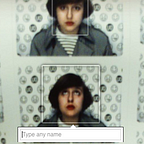Wartime pyjamas
Who do you think you are? I ask because I am not, it turns out, entirely sure who I am. I’d always thought identity worked a bit like being in a hall of mirrors — you project who you want to be onto others, and from the reflection they send back you can make your own conclusions.
Sadly I, alongside a few other billion people, have become somewhat starved of mirrors recently, and have had to make do on my own. It has been an interesting experiment, especially in the sartorial department.
As someone who both enjoys dressing up and, like Hamlet’s Polonius, agrees that “the apparel oft proclaims the man”, entering the era of the guiltless sweatpant was (ironically) uncomfortable.
The first hurdle was the realisation that I did not own any casual clothing, and so had to spend the first few weeks of isolation floating around my flat in a dress and a cardigan like an upset middle-class ghost. The second was that my sense of self was entirely attached to what I was wearing; stripped of my disguises, I became hollow.
No longer could I wear something outrageous to give myself the confidence to walk into a room that intimidated me, or something overly elegant to appear wiser than I am. No blue eyeliner and fishnets to denote my keenness to only go home after 2am; no stern suit to signal I’d be gone by 8pm.
Instead I wore black trousers and old t-shirts everyday, and the Sunday batch of laundry invariably became the most depressing point of my week. Who was I? Some sort of drab female Mark Zuckerberg, without the decency to even be filthy rich.
I am not sure when things changed, but I do know others began to feel my frustration over the summer. In the New Yorker, writer Rachel Syme sung the praises of the billowy, virginal “nap dress”, calling it ““a clean slate, white noise, a gauzy, brief escape”.
Elsewhere online, people became obsessed with the glamorous loungewear of the golden Hollywood era, from Lauren Bacall in The Big Sleep and Marlene Dietrich in Shanghai Express to Elizabeth Taylor in Cat On A Hot Tin Roof.
Suddenly, a substantial minority was bored to tears of appearing slobbish, and yearned to make an effort again, even if only for themselves. I personally went the way of Sophia Loren in A Countess from Hong Kong, and decided to buy myself a neat pyjama set, with a proper collar and a little pocket on the left side of the chest.
In fact, I am wearing it as I write this; mine are not night-time pyjamas but instead a work uniform. Every day I wake up, put on the monogrammed dressing gown once given to me by a hotel, then at 10am I change into my day-time clothes, then change again once work is done. It is monotonous by design, and because what I wear is who I am.
Who am I? Someone going through something traumatic, and who took a long time to come to terms with it. By wearing clothes I’d bought before the plague for the first few months, I kept myself in a state of denial. I was a girl, interrupted; someone waiting for the world to press play again — any minute now.
I am now someone who has accepted her fate, and thrown herself into the monotony of it all. There is no point in me wearing the things I would wear outside because I am not someone who can exist in isolation.
Some people are constant, I’m sure, but I am defined by my extroversion and bone-deep, overwhelming love of people and cities. I cannot dress a person who is barely herself. Still, I have not given up; or rather, by giving up I have given myself hope.
I am stuck in suspended animation, buried under the permafrost — but only for now. The ice is starting to thaw, and I now get to decide who will emerge. I bought my first party outfit last week; a black satin triangle bra with tigers printed on the cups and a black see-through turtleneck. I think I will wear them with a dinner jacket and suit trousers, perhaps some large gold earrings, and take them all to Soho for dinner.
Who am I? No-one for now, but soon the pyjamas will drop and someone will emerge. I’m excited to meet her.
